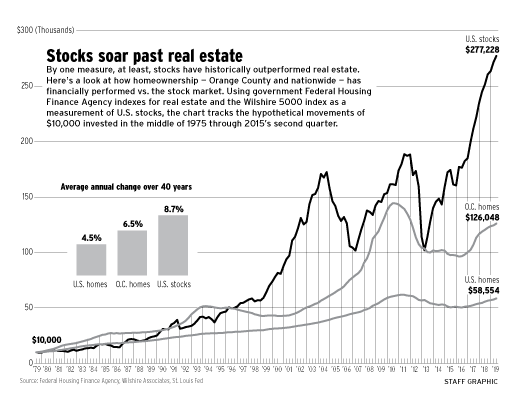Let’s take a look at some personal finance beliefs that may surprise you. First, it’s important to identify and understand the beliefs about money that may interfere with your ability to increase wealth. Your ideas about money are a key element in determining how much money you can make and how much of that money you can keep. Every industry is built on long-held, often implicit ideas about how to make money.
Clinical reports illustrate the often irrational behavior of people with this particular money association. Research on self-esteem tends to agree that people have distinctly different beliefs and behaviors about money.
Ideas about the state of money are associated with obsessive spending problems and financial dependence on others. People with a money system tend to base their self-esteem on their own financial condition. This type and concept of money is the most common, as most people attribute freedom to the idea of having a lot of money. Some people believe that financial success is somehow not spiritual and that it is wrong to worry about money.
A common belief among money watchers is that people should work hard for their money and not expect financial relief. Everyone should enjoy the benefits of financial security through the wealth they have worked hard to create.
I’ve read a lot about finance and business, and I work in the financial services industry, so I have a good foundation for managing my personal finances. Financial literacy can be a powerful tool, especially if you’re already working on improving your relationship with money.
By identifying the factors that underlie your relationship with money and by learning about the inherited money scripts that influence your decisions and behaviors, you can begin to work on improving your relationship with money. Once you have identified your money thought patterns, you can begin to explore how changing those beliefs can dramatically improve your financial situation. Just by taking the time to think about it, you can become more aware of your money behavior. If you take it seriously and take it step by step, you can change your beliefs and your relationship with money.
Challenge Your Financial Beliefs
What are your financial beliefs? Some people believe that money is the root of all evil. Others say that having money is a selfish goal. These beliefs often stem from your family, your social circle, and even your subconscious. Here are some of the most common financial beliefs that may be affecting your finances. You might be surprised to find that many people think this way. Read on for ways to challenge these beliefs and change your financial future.
Money is the root of all kinds of evil
By treating money as the reason for our existence, we can cause all sorts of evil, from stealing to lying to hoarding and exploitation. It’s no surprise that men are often eager for money. Although it does some good in the world, men will often go to extremes to get it. Moreover, the deceitfulness of money can cause a plant to never bear fruit. In this context, Paul’s statement is especially relevant.
While money is an inanimate object, it does not display emotion. The real evil is caused by a person’s love of money, for whom money is a source of gratification. This drive to acquire money leads to many destructive acts. Money lovers often go to extremes to get what they want. In the Bible, the phrase “money is the root of all kinds of evil” appears four times in Genesis.
The phrase “love of money is the root of all kinds of evil” is based on the passage in 1 Timothy 6:10. The word “love” is a formal English translation of the Greek word panton ton kakon. Older Bible versions such as the Wycliffe Bible, Luther Bibel, King James Version, and Douay-Rheims translate the verse literally. Modern Bible versions often translate it differently.
The phrase “money is the root of all kinds of evil” is ambiguous. Although it is not the literal translation of the original Greek text, it does convey Paul’s intent. It does not mean that money is the cause of all evil, but it is an essential part of our lives. This statement is also a common theme in Christian teachings about money. Many people mistakenly think that money is the root of all evil, but it isn’t.
Having money is selfish
It is important to realize that there is no consensus on whether having money is selfish. In a recent Gallup study, a sample of 26,000 people from 60 countries supported the hypothesis. Moreover, the study’s sample was probability-based and nationally representative. Thus, it is difficult to draw firm conclusions from these results. However, the hypothesis has some significant evidence to support it. Listed below are some reasons why having money is selfish.
Many people have the thinking that having money is selfish and arrogant. In this way, they give away whatever little they have. Unfortunately, the situation results in a cycle of dissatisfaction, stress, and burnout. It is best to think of money as a tool to help others and not as the goal itself. You may be in a better emotional state than the person who thinks it is selfish. But you can give freely and help others if you have the means.
Family influences
This article reviews recent research on family and economic influences on financial beliefs. Because finances are a ubiquitous part of our lives, scholarly research has explored the impact of family attitudes on financial beliefs. This study focused on the impact of the family on financial beliefs of Millennial college students. This research provides insights into the financial messages that parents and family members give their children and grandchildren. You may be surprised to learn that your children are more likely to have strong beliefs about finances if they have a parent who believes in their financial literacy.
Despite the fact that many families are highly unequal, the “Black/Brown Tax” remains a major obstacle to wealth building and financial independence. Increasing wealth inequality, such as a disproportionate share of the family’s income, makes it harder for younger siblings to build their own fortune. To achieve financial freedom, family members must share their wealth. It’s no surprise that parents and siblings look to older siblings to shoulder more of the financial burden.
Children’s financial beliefs are influenced by a wide range of factors, including media and school. Parents, however, have the most profound influence on their children’s financial decisions. According to economics education specialist Prof. Carmela Aprea, the financial beliefs and behaviors of children are largely shaped by their parents. And the effects of these beliefs will extend to their children and grandchildren. Therefore, parents must do everything in their power to teach their children about personal finance.
Parents’ beliefs and values often stem from the culture of the family. For instance, families in the South tend to be more conservative, while families in the West tend to be more liberal and progressive. Family and foundation cultures are intertwined and interdependent, and they influence one another. However, the family culture of the American child may have changed over the years. And the daughter of the founder of the Southern foundation may have escaped an oppressive family environment and moved to the West Coast. However, she was eager to join the family board because she saw an opportunity to reintegrate back into the community.
Unconscious motivators
The PRINT survey uncovers your Triggers and your Unconscious Motivators. These factors are a part of your PRINT, or personality, and are often hidden from conscious awareness. They are also known as your shadow self and Best Self. They are deep, unconscious motivations that drive your behaviors. By uncovering these unconscious drivers, you can begin to shift these habits and enhance your performance and productivity. Conventional personality instruments and self-assessments do not reveal these factors.
In addition to influencing our actions and behaviors, our unconscious beliefs shape our decisions and behaviour. The Freudian theory, developed by medical doctor Sigmund Freud, asserts that our actions are shaped by unconscious psychological forces. Freudian psychology is often applied in sales and marketing, interpreting the buying process as the consumer satisfying conscious needs. This theory explains why most people buy Geico insurance, despite the company’s soulless and mindless marketing.
Building empowering beliefs
It’s true that your beliefs about money determine your ability to make and keep money. If you’re a financial failure, building empowering financial beliefs is one of the best ways to turn the situation around and achieve success. The following are three steps to take to develop the mindset that will help you create abundance. Learn more at this link:
First, determine what motivates you. The motivation that drives you is a product of the scarcity mindset. Remember, it’s what keeps you from making enough money to support your lifestyle and achieve your financial goals. This is a critical first step to financial freedom. Then, determine how much you can invest each month. As an example, let’s say you can make one million dollars a year in five years. That’s a staggering amount of money!
Join The Personal Wealth Creation (PWC)™ – Launching (50% Discount)
Learn How to Develop Wealth at a Personal Level.
On the Personal Wealth Creation, you will learn:
- Beliefs of The Multi-Millionaires
- How the Wealthy Manage their Money
- How to Increase Your Income
- How to Manage your Money & Reduce Your Expenses by 20-35%
- How to Build a Fortune by just Investing 15% of Your Income
- How to Design Your Millionaire Master Plan
- And Much More…
Helpful Links:
Homepage
About
Contact
Personal Development Partner




